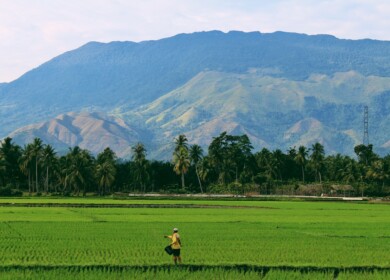Booming patchouli oil industry in Indonesia raises environmental concerns

In the heart of Simboro, a sub-district of western Sulawesi, Haruna, a 42-year-old patchouli farmer, and his father-in-law are part of a growing trend. They work tirelessly, distilling high-quality patchouli oil from dried plants, a labor-intensive process that demands precision and yields a fragrant oil highly sought after globally.
Patchouli oil, derived from the Pogostemon cablin plant, has seen a surge in demand due to its use in luxury fragrances and wellness products. This demand has led to increased cultivation in Indonesia, which produces over 80% of the global supply. However, the expansion of patchouli farming is contributing to the clearing of Indonesia’s vast rainforests, threatening critical ecosystems and increasing the risk of landslides.
As the local industry thrives, so does the environmental impact. Indonesia, a vast tropical archipelago with the world’s third-largest rainforest, faces significant ecological challenges. The clearing of rainforests for new patchouli plantations is causing soil erosion and instability, leading to increased flooding and landslides.
Zulkifli Manggazali, head of West Sulawesi’s Environment and Forestry Agency, has raised concerns about the sustainability of this trend. He notes that patchouli planting on slopes steeper than 45 degrees can lead to severe erosion and environmental degradation. Despite these warnings, the economic incentives for local farmers like Haruna and Hardi, another local farmer, continue to drive the expansion of patchouli cultivation. Hardi, who switched from cultivating cloves to patchouli due to its shorter harvest cycle and higher market prices, represents many in the region who rely on this crop for their livelihood.
The situation in Simboro reflects a broader global challenge of balancing economic development with environmental sustainability. As the patchouli oil market grows, driven by international demand, the need for more sustainable agricultural practices becomes increasingly urgent. Local authorities and environmental experts are advocating for the integration of productive trees like durian into the agricultural landscape to provide long-term economic benefits while preserving the rainforest.
The global community continues to watch as Indonesia grapples with these environmental and economic challenges, highlighting the complex interplay between local industries and global market demands.
Enjoyed this story?
Every Monday, our subscribers get their hands on a digest of the most trending agriculture news. You can join them too!













Discussion0 comments